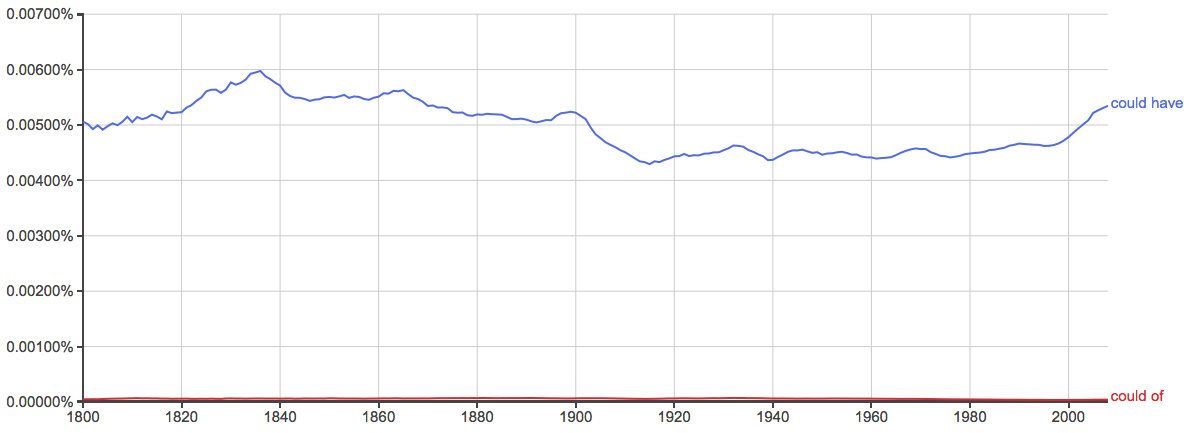Native speakers of any language have a tendency to pronounce words imprecisely. These pronunciations can even differ depending on cultural considerations and regional dialectical variations.
Native English speakers share the same trait. They are likely to slur words together in everyday speech or leave entire letter sounds out of some words.
When most English speakers use the phrase could have, they say its contraction, could’ve. Could’ve sounds almost exactly like the written phrase could of, but is could of grammatically correct? Continue reading to learn more about this verb phrase.
What is the Difference Between Could of and Could Have?
In this post, I will compare could of vs. could have. I will outline which of these variations in correct and which you should avoid in your writing.
Plus, I will show you a helpful mnemonic device that you can use next time you need to choose could of or could have in your writing.
When to Use Could Have
 What does could have mean? Could have is a modal verb phrase. It is part of the conditional past tenses of most verbs. It usually describes something that was possible, but didn’t happen anyway.
What does could have mean? Could have is a modal verb phrase. It is part of the conditional past tenses of most verbs. It usually describes something that was possible, but didn’t happen anyway.
See the sentences below,
- I didn’t want to fight him, so I apologized, but I know I could have beaten him anyway.
- We could have gotten married, but you decided to run off with a lying, cheating, good-for-nothing scumbag named Owen, instead.
- The tweak could also have repercussions for the ad networks and companies that help place ads on those sites, potentially cutting off their ad inventory and revenue in the process. –The Wall Street Journal
Could have, like other modal verb phrases should have and would have, indicate something that is possible if certain circumstances are met.
Also, as I mentioned in the beginning, could have forms the contraction could’ve.
When to Use Could Of
 What does could of mean? Could of is a common misspelling of the verb phrase could have. Most native English speakers use the contraction could’ve in everyday speech. This pronunciation omits the stressed H sound that differentiates have from of in the slurred familiarity of spoken English.
What does could of mean? Could of is a common misspelling of the verb phrase could have. Most native English speakers use the contraction could’ve in everyday speech. This pronunciation omits the stressed H sound that differentiates have from of in the slurred familiarity of spoken English.
Since could’ve sounds almost exactly like could of when spoken aloud, writers sometimes mistakenly believe could of is the correct version of this phrase. As the chart below makes evident, however, could of is almost never used in published English:

This chart, which charts could have vs. could of, isn’t completely exhaustive since it only looks at books, but it still clearly illustrates a long-term usage trend.
Could have is a verb phrase, but of is not even a verb. Of is a preposition, and it is not part of the modal verb phrase could have.
Trick to Remember the Difference
You should never use could of. It is a mistake by careless writers that results from a misunderstanding of spoken English.
Since could have is a verb phrase, and of is preposition, you will always know to use could have as long as you can remember the parts of speech of have and of.
Summary
Is it could have or could of? Occasionally, writers will mistakenly use could of when they really mean could have.
- Could have is a modal verb phrase.
- Could of is a error.
There aren’t any instances where you should find yourself using could of.
Contents
